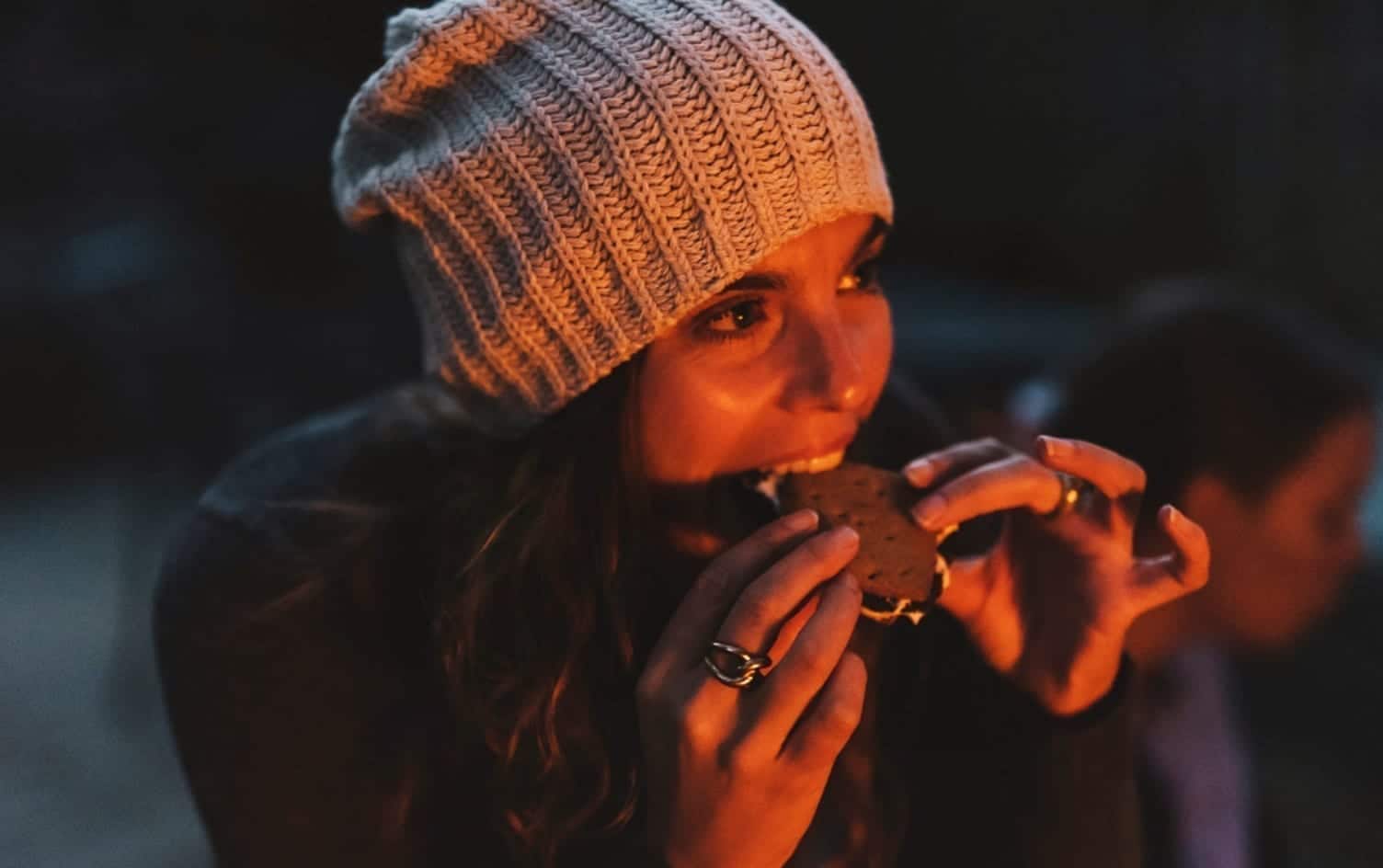Snacking late at night has been known to derail even my most motivated and disciplined clients and, believe it or not, we’re all hardwired to do it. According to the landmark work of Roy Baumeister and Dianne M. Tice at Florida State University, humans have a limited supply of willpower, and the ability to resist temptation is limited by available blood glucose. In plain English: Our willpower is weak when we’re hungry, making it tough to resist snacking.
After a full day of making healthy choices, your willpower reserves are low—another reason why it feels nearly impossible to battle late-night munchies. But there’s hope: Baumeister’s and Tice’s research also shows it’s possible to train your willpower just like a muscle. Which means, getting into the habit of resisting night noshing will make you better at resisting those midnight snack attacks overtime.
Here are some “dos” and “don’ts” my clients find helpful for avoiding the ice cream, boosting willpower, and staying focused on good nutrition habits—give ‘em a shot!
DON’T keep pitfall foods at home Yes, it can be that simple! Are you snacking on chips after dinner? Don’t buy chips. People typically hit the grocery store at times of greater discipline and clarity than those sugar- and salt-crazed moments just before midnight, so it’s easier to resist temptations and fill your cart with nutritious options. With that said, you don’t want to shop on an empty stomach—after all, willpower science shows us we’re less likely to make healthy choices with a growling stomach. If you can’t shop right after a meal, have a snack before going to the market. One smart snack now is better than seven nights of mindless potato chip munching.
DO have a fallback plan At some point you’re going to get hungry after dinner. Having a contingency plan to prevent you from suffering all night is smart. Try keeping an emergency bar (that’s one bar) of incredibly dark chocolate (80% cacao or more) in the house. Two pieces of dark chocolate with a little peanut butter can satisfy most cravings, and it’s actually pretty hard to gorge yourself on chocolate that dark.
DON’T skimp on supper Consistently leaving the dinner table hungry puts you at a disadvantage, and creates a caloric deficit that will be impossible to maintain in the long term. Be reasonable. If an extra helping of chicken or vegetables keeps you from devouring a sleeve of Girl Scout cookies later, that second serving was worth it.
DO notice your triggers I once had a client who would eat a pint of ice cream on the nights she had a self-imposed midnight deadline to finish an accounting report for her business. When I suggested she move the deadline to noon, her dark-hour dairy binges stopped. Are you overlooking any subliminal cues that might be causing you to snack? Keep track of when you’re logging those late-night snacks in your food diary to see if you can link it to a specific activity, event, or feeling.
DO have a ritual Using a set or series of activities to declare, “I’m done with that; now I’m onto this,” can be very powerful. A simple ritual that works for one of my clients: When she has finished eating for the evening, she cleans her teeth—dinner, floss, brush, done. That clean-mouth feeling reminds her that her teeth are off duty for the night, and it’s time to do something other than eat.
Stopping a late-night snacking habit can be very simple, but that doesn’t mean it will be easy. There’s a lot of strategy involved, and these suggestions might only be the beginning for you.
I’d love to hear your thoughts in the comments below! Have you recently quit snacking late at night? What helped you break that bad habit?




